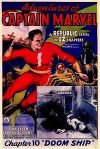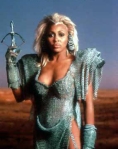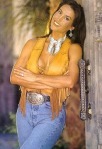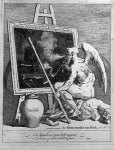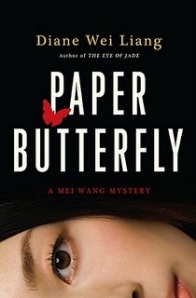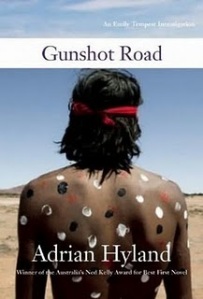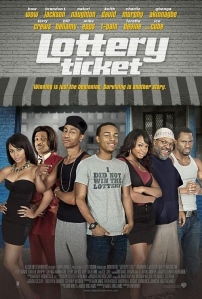This entry comes to us from Tom Hall, who placed second in our first short story contest. He writes about my favorite topic - vampires! He's crafted a nice piece here and has created a unique world. I hope he someday expands this into a larger work so I can see what happens next. Enjoy!The ReturnBy Tom Hall
Joseph always loved this part of the work—running free through the forests of Northern Europe. Just to get out of those infernal catacombs they were forced to live in as part of the Masters’ guards was a blessing he seldom received. Or, in Joseph’s case, not a guard. He was one of their assassins. That part of the job he hated. He often wondered what gave the Masters the right to dispense their own brand of justice so indiscriminately. He wondered why none of the other vampire covens had the guts to unite and overthrow them. And he wondered, not for the first time, if he was the only one who felt this way.
Of course, he guarded these thoughts very carefully. There were some vampires who could read minds, and if the Masters ever learned that he had such thoughts…well, his life would be over in an instant.
Joseph and his fellow assassin, William, were on their way back to France after having disposed of a problem in eastern Poland. Joseph had been half tempted to see if he could slip away from William, and head west to the States. But then he thought better of it. William was an excellent tracker, very loyal to the Masters, and a much better fighter than Joseph himself. So he quickly buried the idea of freedom he was secretly nursing.
They had reached the outskirts of a quaint village in southern Switzerland and were preparing to hunt, when he saw the girl. Or woman--Joseph really couldn’t quite tell which. She was walking along a street towards them. The girl seemed to have a strange, almost ageless quality about her. She was about five foot five, thin but healthy. Her light reddish hair and dark green eyes practically shimmered through the late dusk. She moved with a certain ethereal grace, almost as though she were floating. A slight glow seemed to radiate from her, illuminating the ground at her feet. So how come everyone around them, along the busy street, seemed not to notice her? Even without the glow, she was the most beautiful creature Joseph had laid eyes on. More so by far than any vampire he knew.
The closer Joseph looked, the stranger the scene became. Not one of the people she passed seemed to take any notice of her. Most kept on with their tasks. A few would pause, look around them in a slightly confused manner as she passed, and then go right back to whatever it was they had been doing. For her part, the girl seemed blissfully unaware that anything was amiss, a slight smile of contentment on her face as she weaved in and out amongst the villagers. Joseph stealthily moved closer to the girl, who paused to look in the window of one of the street shops. They stood only a few yards apart.
All of a sudden, he was hit with the most delightful smell he’d ever encountered before. Indeed, if asked before that moment, he would have doubted that
anything could have smelled as wonderfully intoxicating as the aroma which now assailed his senses. Vampire though he was, he actually felt light-headed from the heady fragrance! And somehow, he knew—he didn’t know how, but he just
knew—this glorious scent was coming from the girl. He licked his lips as the aroma nearly made him drool just by being so near to it.
Then two things happened in rapid succession. The first was that the girl had moved away from him while he had been lost in her scent, and turned a corner down a dark street. The other was that William had joined him, and as the girl disappeared from sight, William looked back at him and smiled. “I saw her first, brother!” Before Joseph knew what had happened, he was flat on the ground while he saw a blur of William follow the girl.
Joseph sprang to his feet, eyes narrowed and teeth bared in rage. The girl was his! Her blood was
his! How
dare William try and take this girl away from him! And running that fast with humans so near was dangerous as well. Joseph ran as fast as he could at a normal human speed, afraid with each step that he would be too late. William was an efficient hunter, and a nasty, cruel, and vindictive person.
Sure enough, as he turned the corner, he saw the girl cowering in a corner by a collection of rusty garbage cans. Joseph could hear her poor heart beating rapidly as she gazed, terror stricken, at William, who stood over her, leering down at her face. Joseph cringed at the sight. The girl deserved better than to die in an alley, her beautiful body found drained and lifeless beside a pile of trash! But he couldn’t risk a fight with William, not here. There were too many potential witnesses. And he figured he’d probably lose anyway. Meanwhile, the smell of the girl’s blood grew stronger, as though seeping through her pores along with her fear.
A strange, inexplicable desire to protect this helpless girl flooded through Joseph. He had never felt the like of it before. She looked so fragile cowering there! And he realized for the first time in his long life that he didn’t care what would happen. He was going to stop William from killing her. If she was going to die, it would not be in a dingy alley. No, it would be in a nice place, a beautiful garden, full of flowers and flowing water. An image of a valley he had never seen came to his mind then…flowers, a bright blue sky, rolling green hills, waves crashing on the shore. The girl walked there, blissful, happy, serene. And at that moment, Joseph made a decision. He would find that place and take her back. He would resist the urge for her blood. If he could, if only he could. But first, he had to stop William.
Joseph crouched and prepared to spring at his once-ally. The girl had shut her eyes and turned her head away, as though resigned to what was about to happen. William lifted her wrist to his face. He closed his eyes and sniffed along her arm. Joseph started to spring at him…
… then abruptly, checked himself. For just as William bit down on her arm, the girl’s head spun around. Gone was the resigned look. Now the girl’s eyes glowed softly. Her mouth was twisted in a grin that made Joseph reel back, cringing in horror—it looked like she actually
wanted William to bite her!
“Yes, my sweet,” she purred in the sweetest voice Joseph could recall hearing. “Drink deeply.” William’s eyes snapped open in surprise at her voice, as he continued drinking her blood. After a few gulps, William suddenly broke contact and fell over backward in an attempt to get away.
“What are you?” William shrieked, eyes wide with terror, his hands grabbing at his neck. The girl stood, grinning down at him. William started choking and gagging, his eyes bulging out of his face. The girl continued watching him and started to laugh.
“What am I?” She repeated softly. “Oh, vain, arrogant vampires! Did you really think that nature, the Universe, God would allow you to exist—immortal, strong, fast, cunning--and not also create a force to keep you in check? A more powerful force than even your kind?” She belted out a harsh laugh that reminded him of metal scraping against metal. ”You see where your ignorance has led you? To eternal death!”
As she spoke those words, William’s shrieking rose even higher, and he suddenly burst into flame. In moments, he was nothing but a pile of ash. The girl, or whatever it was, chuckled and kicked at the pile, scattering it to the wind.
She then turned and looked at Joseph. He gulped, terrified, and fell over backwards in his haste to get away from her. To think that just moments before, he had actually thought this girl needed him to protect and save her. She had called William arrogant, but Joseph now saw that he was, too. She glided over to him, and Joseph cringed away from her. She pursed her lips and slowly shook her head as she stared down at him.
“So—this is the vaunted and feared Royal Guard of the great Masters, is it?” He heard the contempt in her voice and wondered where it came from. Joseph noticed that her voice had a lilting tone to it, an accent Joseph knew he had heard before but couldn’t place at the moment. ”Well, tis indeed good for you that none of our French or Spanish friends have woken! You wouldn’t last a day!”
Though her words confused him, Joseph had to know what she was. But all he could do was repeat William’s last words and hope they wouldn’t be his own last words as well.
“Wh-what are you?”
She smiled slightly. “A…scout, I suppose ya could call me. Yes, as good a word as any, I suppose. Y’see, we’ve decided that we have too long been absent from the affairs of the world. The humans, it seems, have for the most part forgotten about us, and this both delights and annoys us. So, we’ve emerged from under our mountains to find the world very different than before. The long centuries have taken their toll. There are humans who remember us, but precious few indeed.
“Then we learned that vampires had multiplied drastically in our absence. We made contact with those among our children who had walked among the humans during the centuries in which we had dwelt upon the earth, and they confirmed this for us. Some of our children had been combating the evil ones of you. But we also heard from them that there are good vampires that exist in this world too.”
The girl paused. She looked up at the stars that now filled the sky. “So beautiful,” she murmured.
Joseph stared at her in awe. What kind of a woman was this who faced down an attack by a vampire, effortlessly killed it, and was now distracted by the night sky? He watched her. She was glowing brighter now than when he had first seen her on the street. Her scent still filled his head, driving nearly all rational thoughts from his mind. Joseph’s heart was lost, he knew it, though he didn’t know how it could have happened.
“
You’re beautiful,” he murmured. She turned to look down at him again. “The most gorgeous woman I have ever seen in my entire existence.”
Her thin lips curved upward and the smile on her face broadened. “That little speech has saved yer life, lad,” she said. Then he finally recognized her accent.
“You’re from Ireland?” Joseph asked.
She looked back up at the sky, sighed, and nodded. “Certain sure,” she murmured. “Only we have reemerged. Our Norse brethren are stirring as well.” She closed her eyes and inhaled deeply. “Ah, the air—tis so fresh! So much better than those dank caverns.” She turned back to Joseph again. “Ah, get up, lad—I’ll not hurt ye! I want you to go back and tell yer masters that they’d best watch their steps from now on. Tis all well and good for ye tae drink human blood, but some o’ the humans are under our protection. And if they are harmed…” She paused and her eyes blazed with fury. “Then God help ye! Our wrath is a terrible thing to behold!” She turned and began to glide away from him back down the street the way she’d come.
Joseph couldn’t bear it. “Wait!” he called, hurrying after her. She paused and turned back to him, waiting for him to catch up to her. He took her hand and got down on his knees. “Please! Don’t leave me! I don’t think I can live without you!” He felt like a complete fool. Until a few minutes ago, he had prided himself on being strong where females were concerned. But all that had gone in the instant since he’d seen her. “Please take me with you! I can’t stand this life! I have wanted to get away from the Masters for so long! Can’t I come with you?”
She gazed sadly at him, and put her hand on his cheek. “Our kind doesn’t mix,” she said. “You are vampire, I am not.”
“What are you then?” Joseph whispered.
The girl sighed again. “Other,” she replied. “Older, wiser, less compulsive. Our two kinds are repulsed by one another.”
“But you don’t repulse me,” he said softly. He looked into her eyes, and could tell in his heart that she wasn’t repulsed at all. Somehow, she knew what he was thinking. “You’re right,” she whispered. “But it still can’t be.” She turned again and continued walking. “Now go and tell your Masters all you have seen here, and that we have returned once again to the world. And tell them to tread lightly so as not to arouse our anger.”
Joseph ran after her again, and touched her on the shoulder. I am pathetic, he thought. She turned back with a sigh. “Wait, please! Who am I supposed to say has returned? I don’t know what to tell the Masters.”
She smiled a grim smile. “Trust me; they’ll know who we are.”
“Please, at least tell me
your name,” he begged.
“Maureen,” she said, her smile turning bright. “What’s yours?”
“J-Joseph,” he stuttered, and her smile grew.
They stood in the dark street a moment, staring at each other. Then placing her hands on either side of his face, she pressed her lips to his gently. Time seemed to stop for Joseph, as he felt her love in that tiny demonstration. He had never believed in love at first sight, or the concept of soulmates. Not, at least, before that night.
She pulled away from him finally. Then, touching his face one last time, she whispered, “Don’t be afraid--I’ll see you again, Joseph.” And with that, she disappeared—she didn’t walk away, mind you, she was just not there anymore--the street was completely deserted, except for one sad, lonely vampire.
Joseph returned to Paris, afraid that he was also returning to his death. For the Masters would demand a full report and demand to see Joseph’s thoughts. And when they found that Joseph was in love with the enemy, well, that would be it for him. But Maureen had promised they would meet again, and that gave him the courage to return to his old life.
Only one of the Masters was enthroned in the audience chamber when Joseph arrived to make his report. He inwardly breathed a sigh of relief before narrating everything that had happened. Well, perhaps not everything. He left out the whole part about being in love with her. No need to die tonight.
As Joseph spoke, he could see the Master’s face growing angrier by the second. And even, Joseph realized, a bit frightened. When he was at last dismissed, he hurried to his room. Sitting down on a chair, he put his head in his hands and tried to think about what had happened. But all he could remember was her face. And the only word he could think was her name. Maureen. Smiling to himself, he said it aloud, just to hear it, thinking about how it just rolled off his tongue.
The Master, meanwhile, had retired to his chamber. But his thoughts were much less pleasant than Joseph’s were. He paced for a long time, mulling it all over. He wished the other Masters would return in short order so they could discuss this unfortunate turn of events. If he had been human, he would have broken out in a cold sweat over the news Joseph had brought back.
He sat and stared into the distance, trying to formulate a plan. Any plan to stave off the sudden reappearance of this threat. How many humans were under their protection, he wondered. He shuddered over the warning that the girl had made, about their wrath descending on them. He had seen what their wrath could do! And the words that returned to his mind over and over that night were also very different that Joseph’s, making him shudder even as he said them.
“The Fey.” He muttered. “The Fey have returned!”
 [/caption]
[/caption]
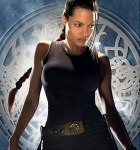 [/caption]
[/caption] [/caption]
[/caption] [/caption]
[/caption]








